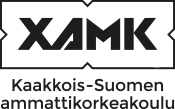Thermophysics (5 cr)
Code: TT00BA27-3005
General information
Enrollment
15.08.2019 - 30.08.2019
Timing
01.08.2019 - 31.12.2019
Number of ECTS credits allocated
5 op
Mode of delivery
Contact teaching
Unit
Department of Electrical Engineering, Building Services and Material Technology
Campus
Mikkeli Campus
Teaching languages
- Finnish
Seats
20 - 30
Degree programmes
- Degree Programme in Building Services Engineering
Teachers
- Reijo Vuohelainen
Teacher in charge
Reijo Vuohelainen
Groups
-
TTMI19SMBuilding Services Engineering, part-time studies
Objective
You can use the concepts of thermal physics systematically.
You can solve the problems of physics and technics using the laws and methods of thermal physics.
You can measure the quantities of thermal physics, study the laws of thermal physics experimentally and report the results.
Content
What are the basic phenomena, the most important quantities, units, definitions and laws of nature in thermal physics?
How can you use the laws and methods of thermal physics to solve problems in physics and technique?
How can you measure the quantities of thermal physics, study the laws of thermal physics experimentally and report the results?
Materials
On Moodle platform
Teaching methods
Scheduled track:
You will attend teaching and guidance sessions as specified in the weekly schedule.
Your study routine is determined by the scheduled group sessions and by the self-study assignments.
Independent track:
You can speed up your studies by, for example, choosing independent modes of completing assignments, e.g. online, or by selecting courses from the schedule of another group.
Independent learning assignments require more self-study of the subject field compared with the learning route that is based on a working week.
Exam schedules
Two resit exams
Completion alternatives
You can speed up your studies by, for example, choosing independent modes of completing assignments, e.g. online, or by selecting courses from the schedule of another group.
Independent learning assignments require more self-study of the subject field compared with the learning route that is based on a working week.
Student workload
135 h, of which about 60 hours are worked in a classroom and exams. About 20 hours are laboratory measurements. Homeworks, exam preparations and report writing takes the rest of the time.
Evaluation scale
1-5
Assessment methods and criteria
Participating to the course work, homework assignments and hands on excercises on campus.
